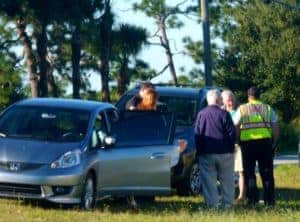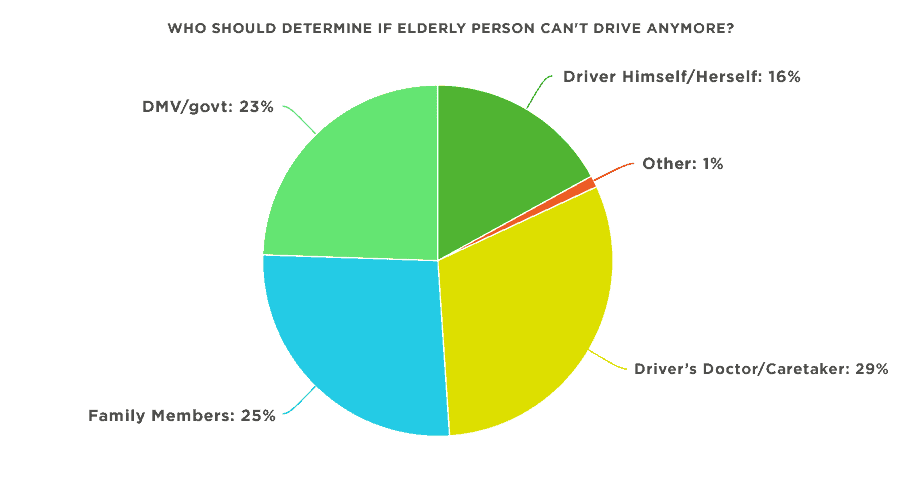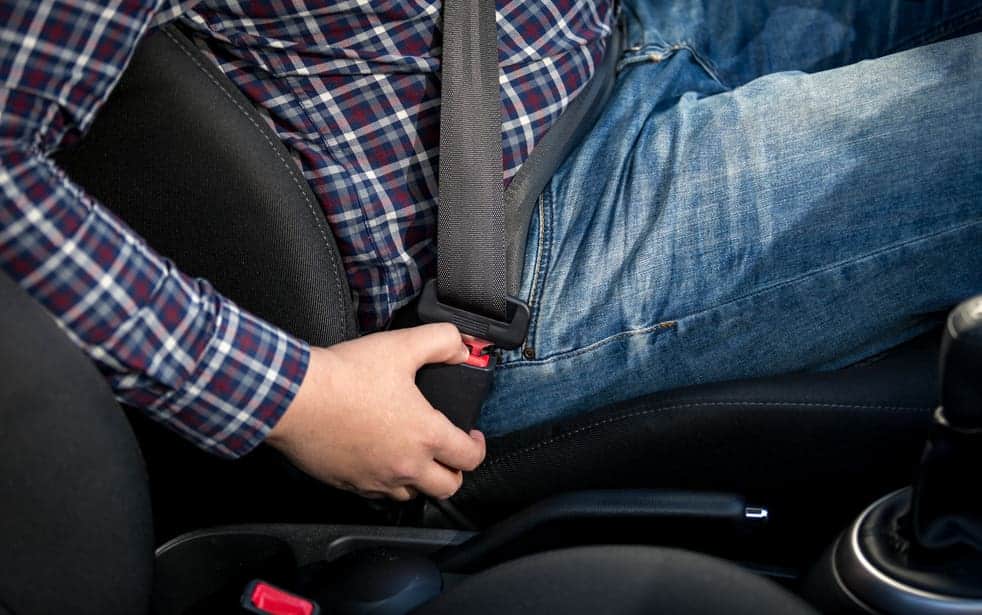Driving a car means keeping mobility and independence for many elderly Americans.
But about 14 million drivers have been in a car crash or other road incident caused by an elderly driver in the last year.
The good news: Even though older drivers are involved in a high number of car crashes, they have low crash fatality rates, according to the National Highway Traffic Safety Administration. The theory is that senior drivers are more likely to drive during daylight hours and avoid busy highways.
The bad news: Elderly bodies don’t bounce back easily, even from low-impact crashes. Too many seniors injured in motor vehicle crashes are in pain for months afterwards. This affects an elder’s quality of life—including the ability to live independently.

We don’t want our elders to be hurt—or hurt someone else—in a car accident before they stop driving.
As our population ages and more elderly drivers are on the road, this is going to become a much bigger problem.
Who decides when an elderly person should stop driving?
Family members: No one actually wants to take keys away from an elderly relative. A national survey of adult children found that most people would rather talk to elderly parents about sex or end-of-life plans than talk about taking away the car keys.
- 79% of adult children say taking away the car keys is “THE MOST uncomfortable conversation” they could have with an elderly parent.
- 25% say they will never have this talk, despite any safety concerns.
Department of Motor Vehicles: States vary wildly in elderly driver testing and license renewal rules. Washington, for example, requires an-person license renewal every five years. Hawaii requires drivers over 72 to pass a driver’s test and eye exam every two years.
It’s not safe to leave the DMV as the sole decider: a senior citizen’s health or sight could decline significantly in a few years.
Medical professionals: Do you hope the family doctor will intervene to take away the car keys from an unsafe older driver? It’s not likely. Doctors say that talking to elderly patients about driving is a huge challenge, and that patients are more likely to listen to family or friends.
“Even when a physician can evaluate the potential impact of a diagnosis in an office setting, they are not directly observing the person’s driving skills on the road, which is the most relevant issue when assessing driving safety”
– Dr. David Hogan, a geriatrics expert at the University of Calgary.
Unless there’s a very clear health obstacle to safe driving, medical professionals are unlikely to talk to elderly patients about driving.
What do senior citizens say?

Of the survey of 1,000 people aged 65 years or older:
- 30% say they would actually prefer for their family to decide whether or not they should still have a driver’s license;
- 26% prefer to make the decision themselves
- 21% would like their doctor or caretaker to make the decision.
- Only 10% of those ages 65+ think the DMV or government should be able to make that decision



